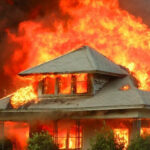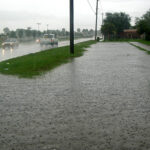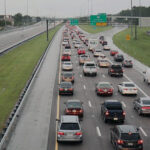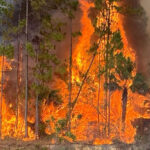Plan to Evacuate
A wide variety of emergencies may cause an evacuation. In some instances you may have a day or two to prepare, while other situations might call for an immediate evacuation. Planning ahead is vital to ensuring that you can evacuate quickly and safely, no matter what the circumstances.
- Learn the types of disasters that are likely in your community and the local emergency, evacuation, and shelter plans for each specific disaster.
- Plan how you will leave and where you will go if you are advised to evacuate.
- Develop a Family and Household communication and reunification plan so that you can maintain contact and take the best actions for each of you and re-unite if you are separated.
- Assemble supplies that are ready for evacuation, both a “go-bag” you can carry when you evacuate on foot or public transportation and supplies for traveling by longer distances if you have a personal vehicle.
- If you have a car:
- If you do not have a car, plan how you will leave if needed. Make arrangements with family, friends or your local government.
- A list of open shelters can be found during an active disaster in your local area by downloading the FEMA App
- Listen to a battery-powered radio and follow local evacuation instructions.
- Take your emergency supply kit
- Leave early enough to avoid being trapped by severe weather.
- Take your pets with you, but understand that only service animals may be permitted in public shelters.Plan how you will care for your pets in an emergency now.
- If time allows:
- Follow recommended evacuation routes. Do not take shortcuts; they may be blocked.
- Be alert for road hazards such as washed-out roads or bridges and downed power lines. Do not drive into flooded areas.
If you evacuated for the storm, check with local officials both where you’re staying and back home before you travel.
- Residents returning to disaster-affected areas after significant events should expect and prepare for disruptions to daily activities, and remember that returning home before storm debris is cleared is dangerous.
- Let friends and family know before you leave and when you arrive.
- Charge devices and consider getting back-up batteries in case power-outages continue.
- Fill up your gas tank and consider downloading a fuel app to check for outages along your route.
- Bring supplies such as water and non-perishable food for the car ride.
- Avoid downed power or utility lines; they may be live with deadly voltage.
- Stay away and report them immediately to your power or utility company.
- Only use generators away from your home and NEVER run a generator inside a home or garage, or connect it to your home’s electrical system.







